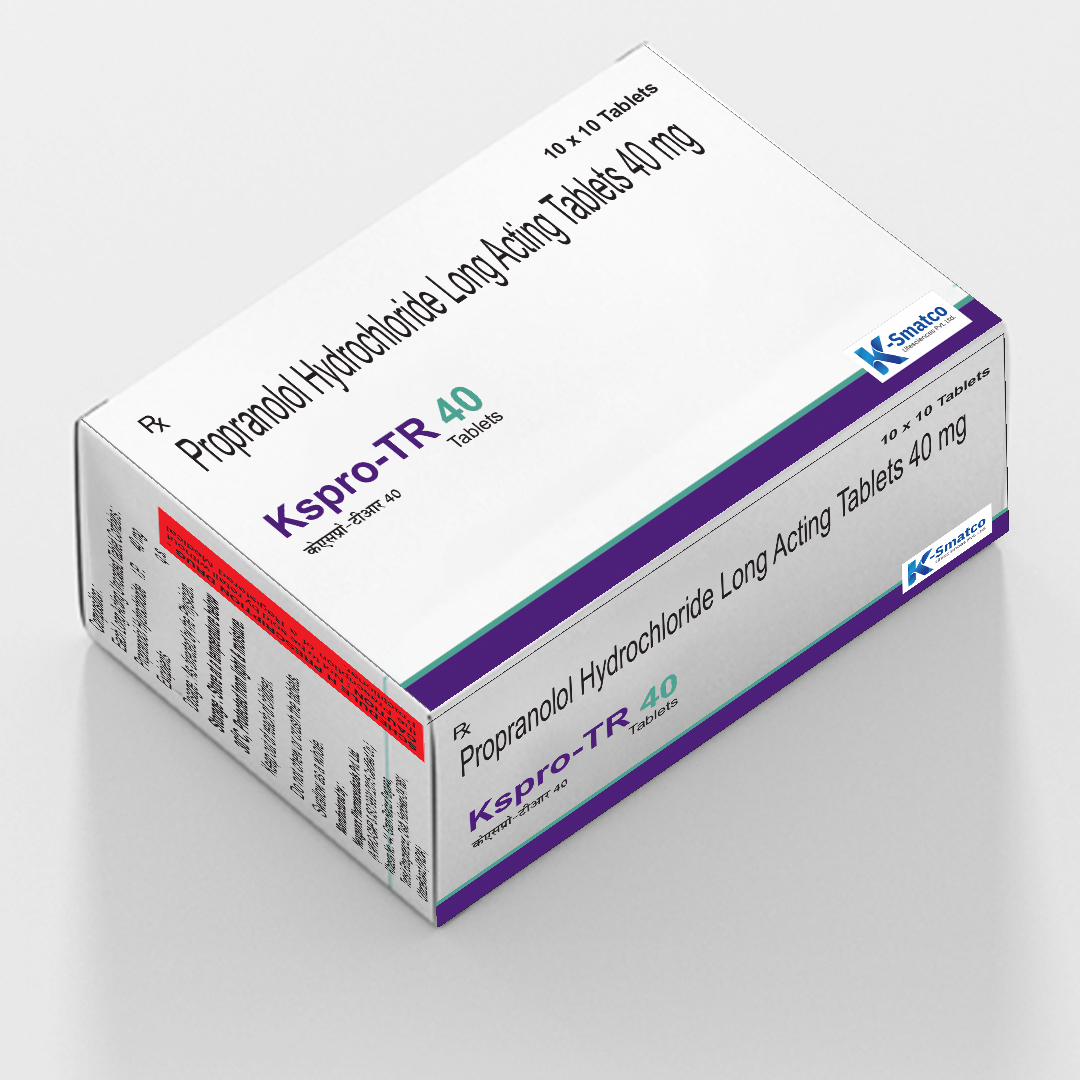Kspro 40
Propranolol Hydrochloride 40 mg Long Acting Tablets
Introduction
Propranolol Hydrochloride is a widely used medication belonging to the beta-blocker class. It is indicated for the treatment of high blood pressure (hypertension), chest pain related to heart conditions (angina), heart rhythm disorders (arrhythmias), and for preventing heart attacks. Additionally, it can be prescribed for migraine headache prevention and to control tremors (fits).
Mechanism of Action
Propranolol Hydrochloride works by relaxing and widening blood vessels, allowing blood to flow more easily. It slows the heart rate, making it easier for the heart to pump blood efficiently, thereby lowering blood pressure and reducing the risk of cardiovascular complications such as heart attacks and strokes.
Uses
- Treatment of Hypertension (High Blood Pressure)
- Management of Angina (Chest Pain)
- Treatment of Arrhythmias (Heart Rhythm Disorders)
- Prevention of Heart Attack
- Prevention of Migraine Headaches
- Management of Tremors (Fits)
Medicinal Benefits
- Cardiovascular Protection: Reduces strain on the heart, preventing major heart events like heart attacks.
- Blood Pressure Control: Helps maintain a healthy blood pressure range.
- Heart Rhythm Stabilization: Useful in managing irregular heartbeats.
- Migraine Relief: Reduces the frequency and severity of migraine attacks.
- Tremor Control: Minimizes shaking and tremor-related symptoms.
Dosage and Administration
- Take orally, with or without food, as prescribed.
- Swallow the tablet whole with a glass of water; do not crush, chew, or break it.
- Follow your physician’s instructions carefully regarding dosage and timing.
Storage
Store in a cool, dry place, protected from sunlight and moisture.
Warnings and Precautions
- Do not stop this medicine suddenly without consulting your doctor to avoid heart rhythm issues.
- Inform your doctor if you are pregnant, planning pregnancy, or breastfeeding.
- Use caution when driving or operating heavy machinery as the medication may cause dizziness.
- Avoid alcohol consumption to prevent enhanced dizziness and side effects.
- Let your doctor know about all current medications and health conditions to prevent potential interactions.
Common Side Effects
- Dizziness
- Fatigue
- Cold hands and feet
- Constipation
- Difficulty sleeping (Insomnia)
- Nightmares
Word of Advice
- Maintain regular follow-ups with your healthcare provider.
- Monitor blood pressure regularly as advised.
- Stay hydrated and maintain a heart-healthy lifestyle for optimal results.
